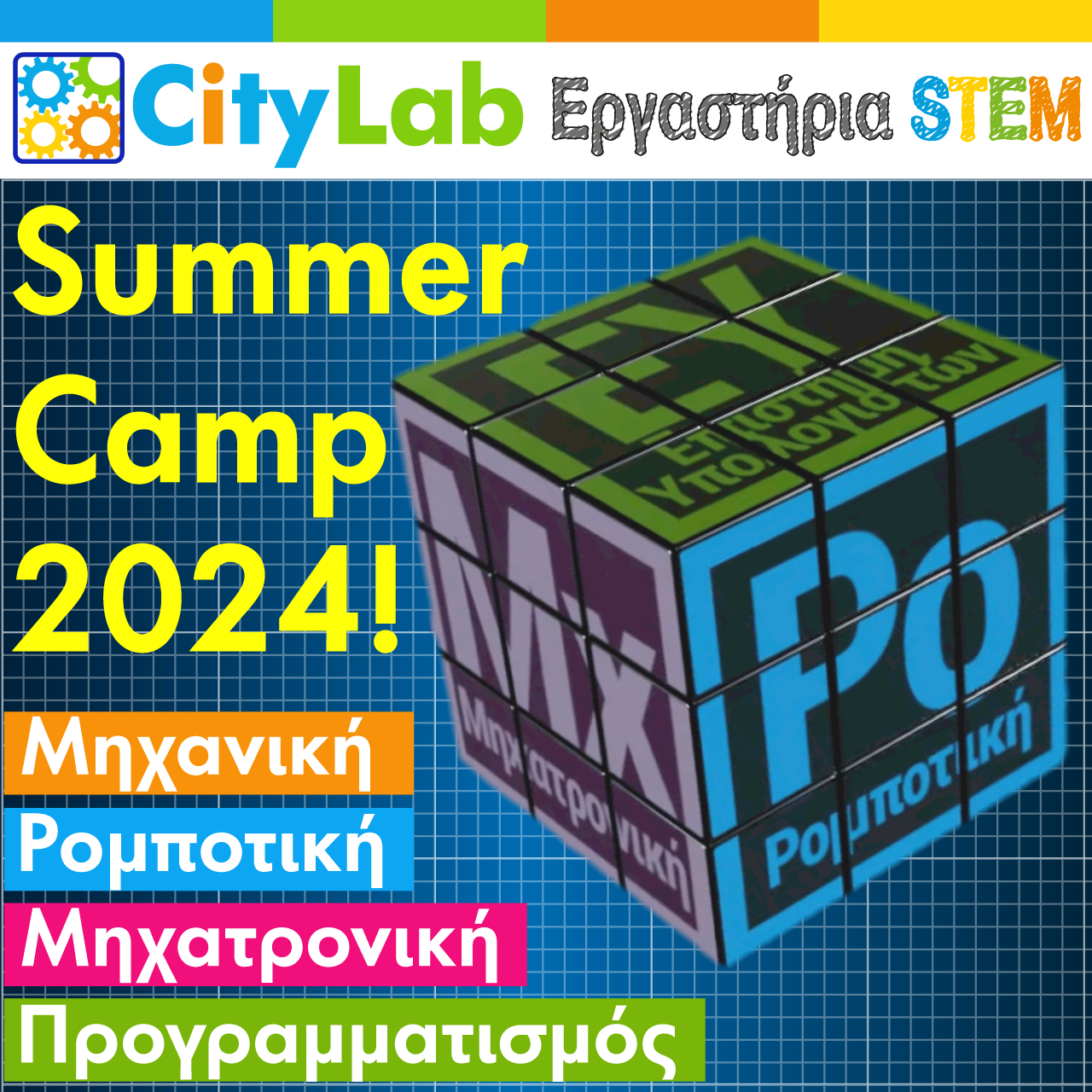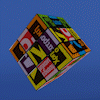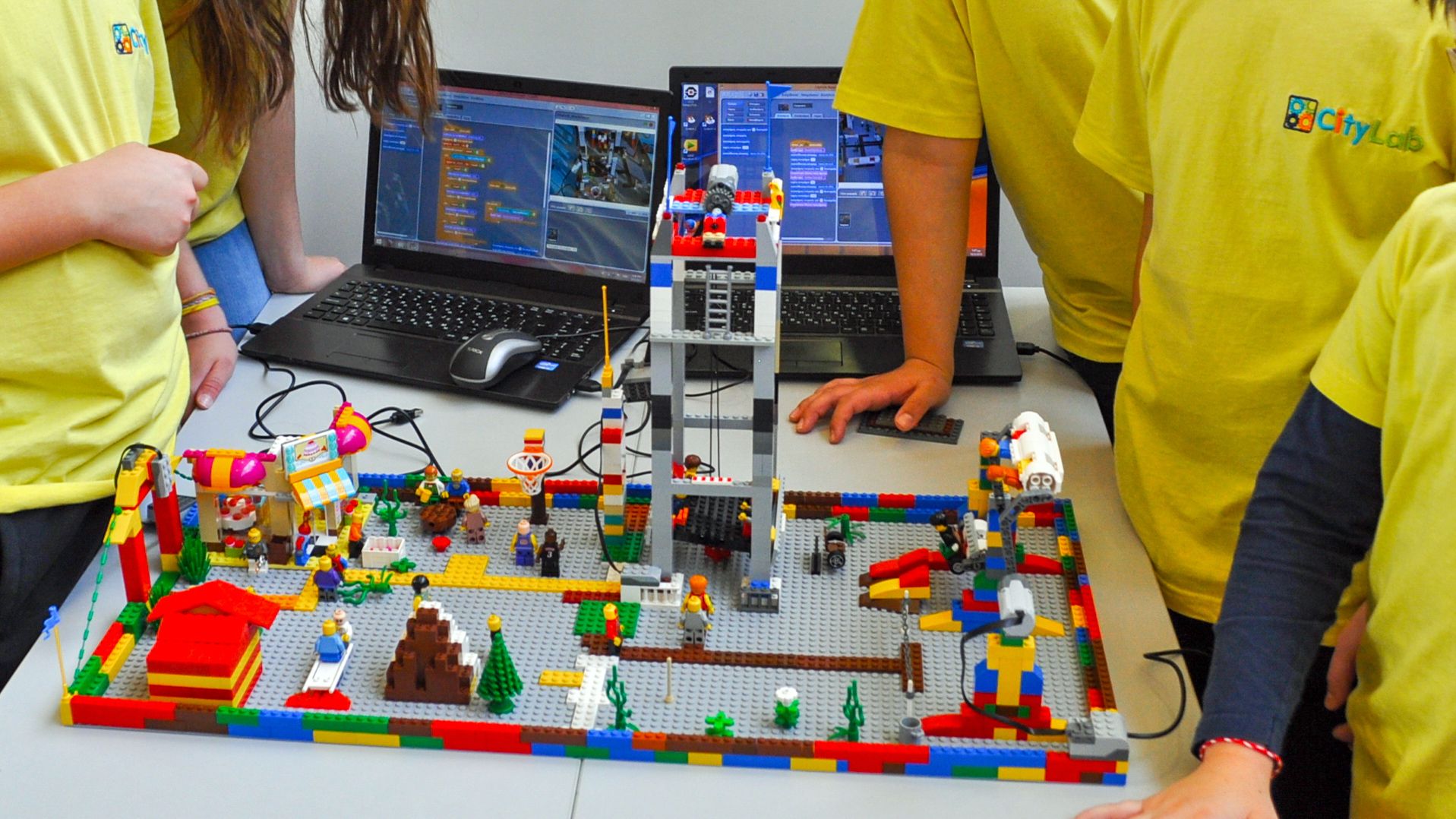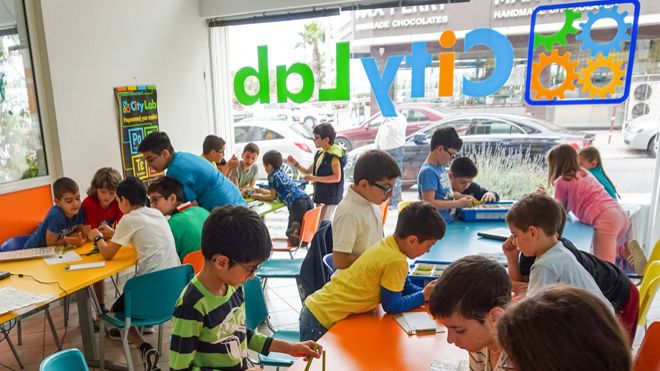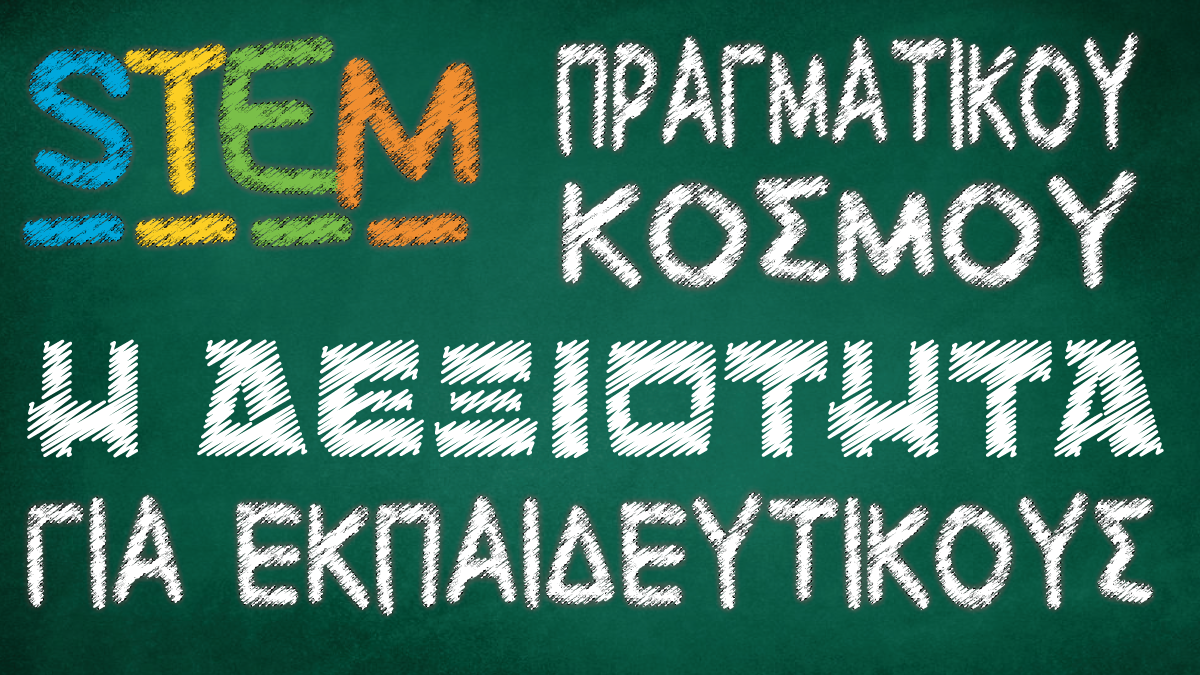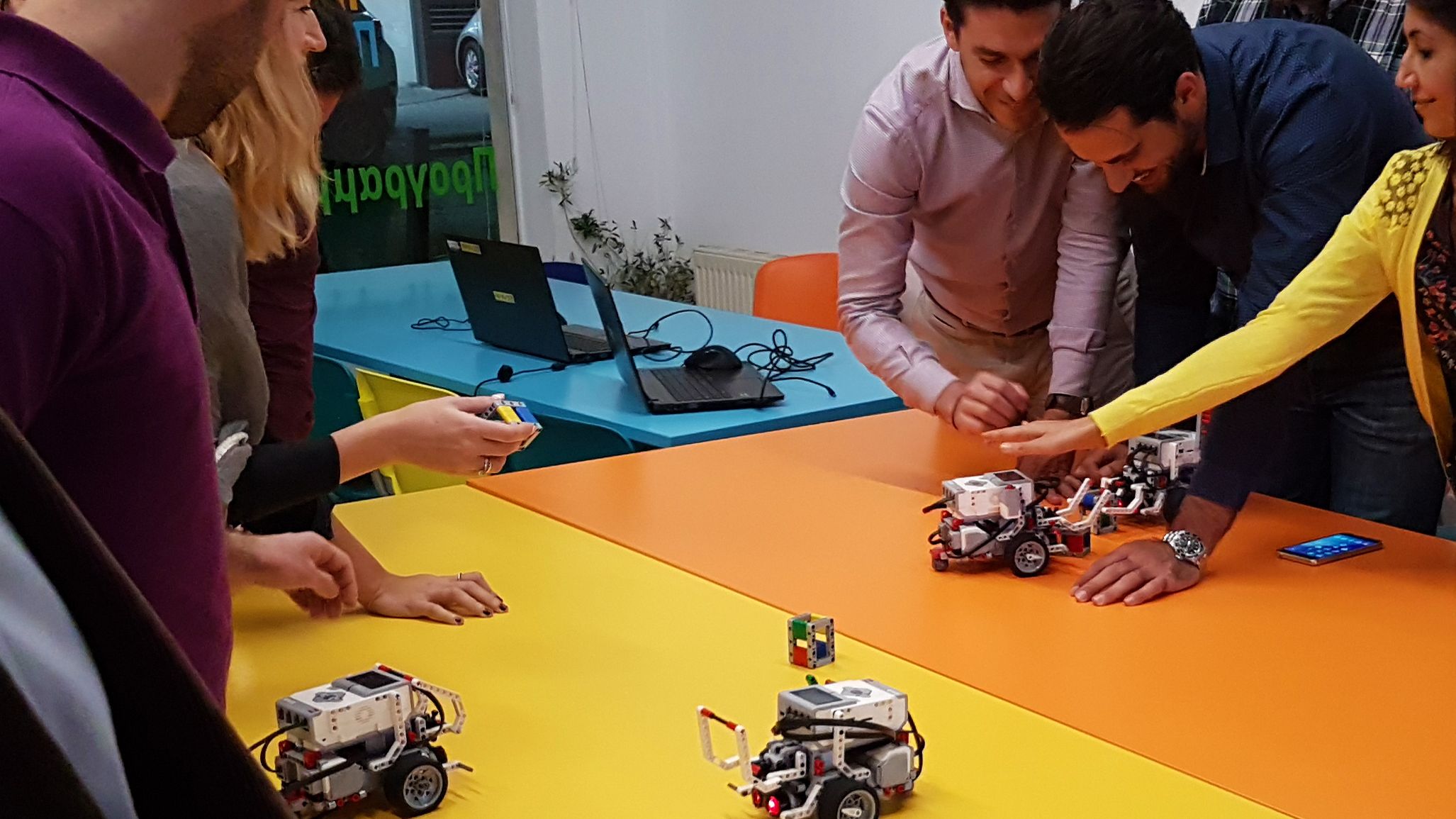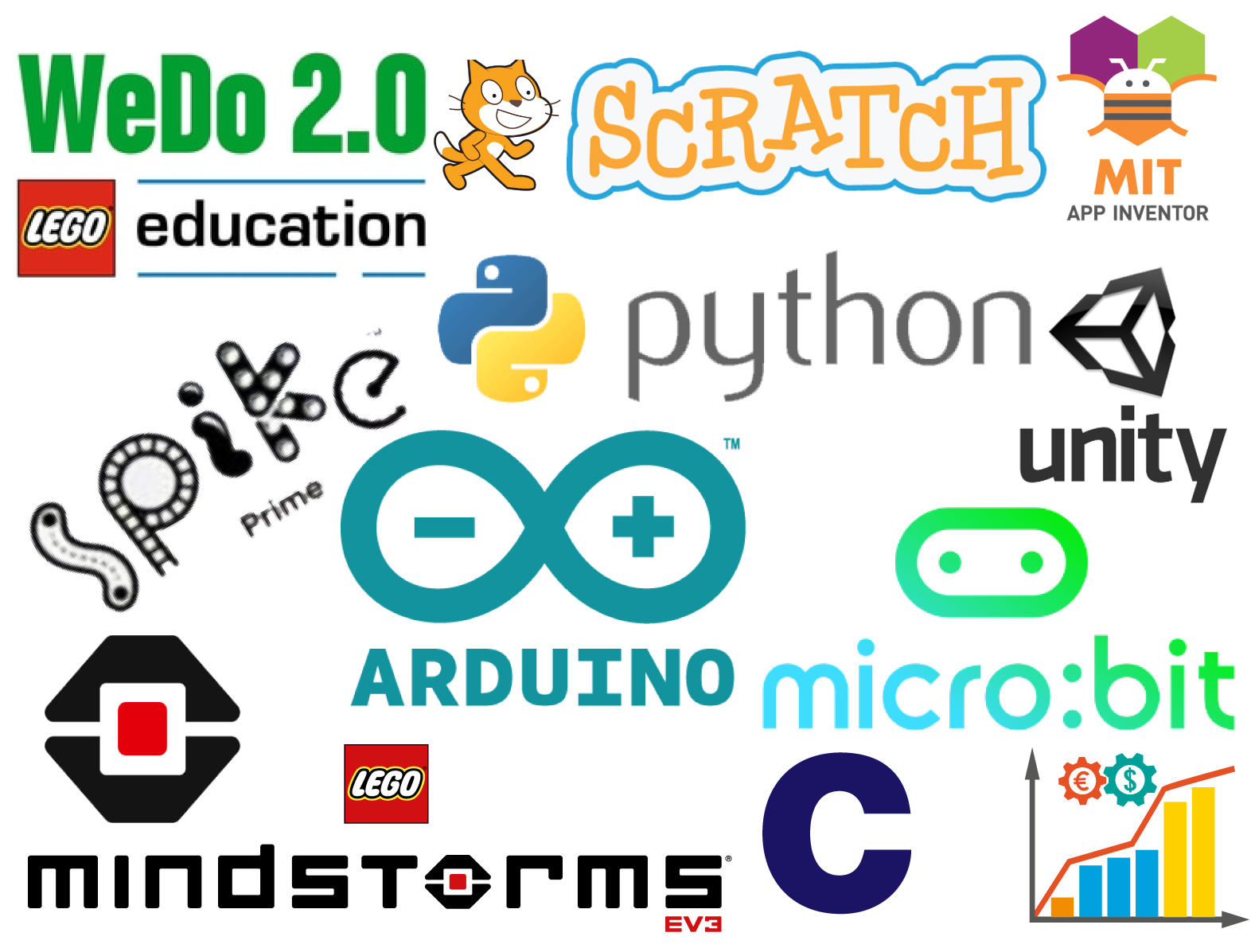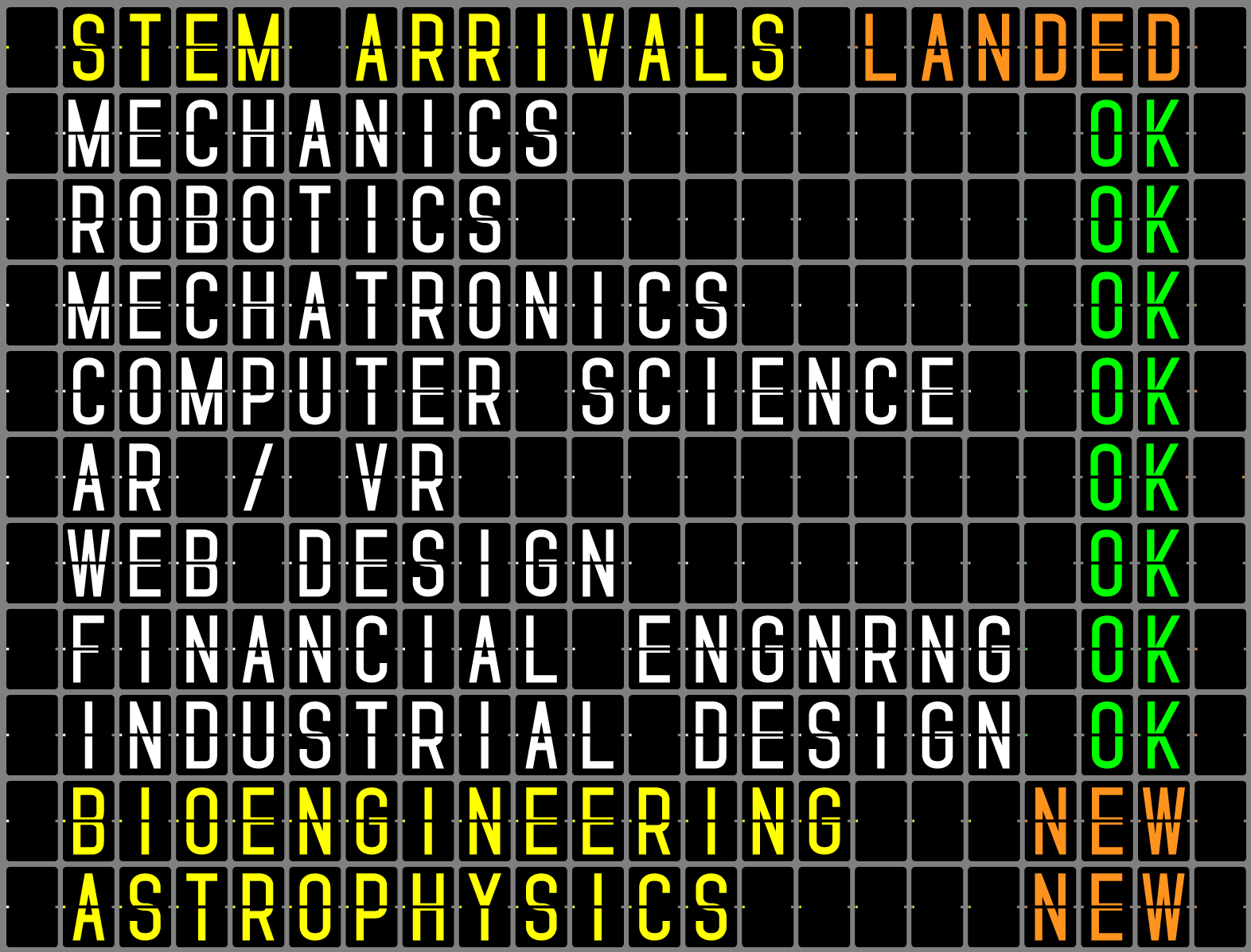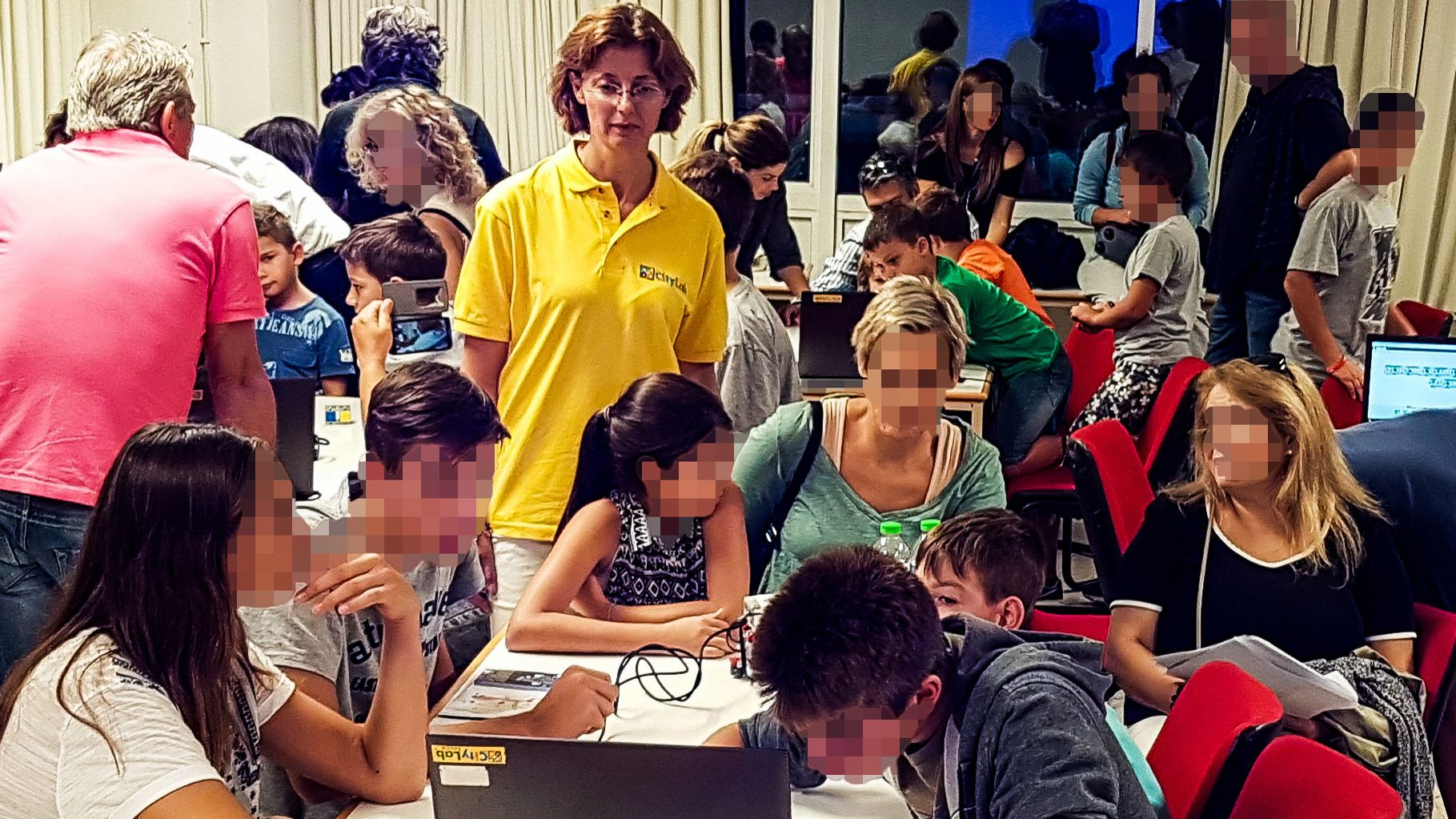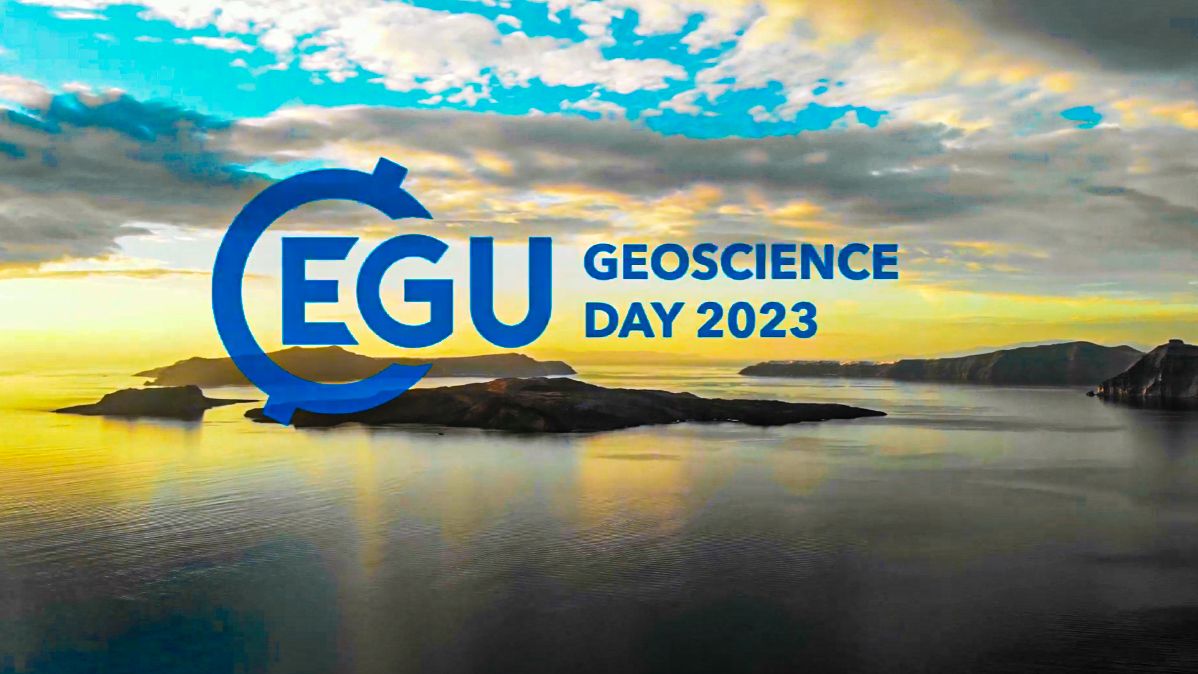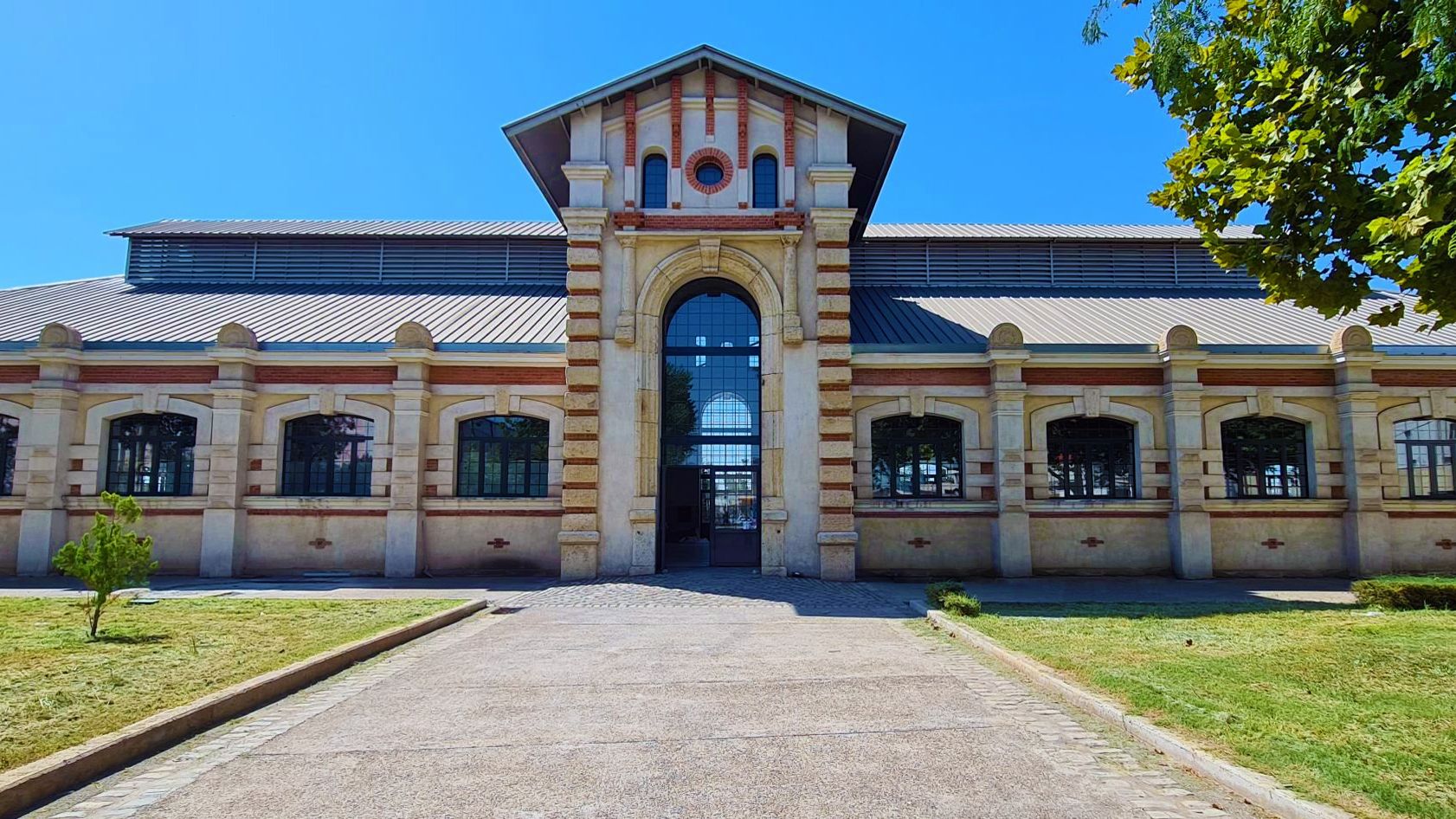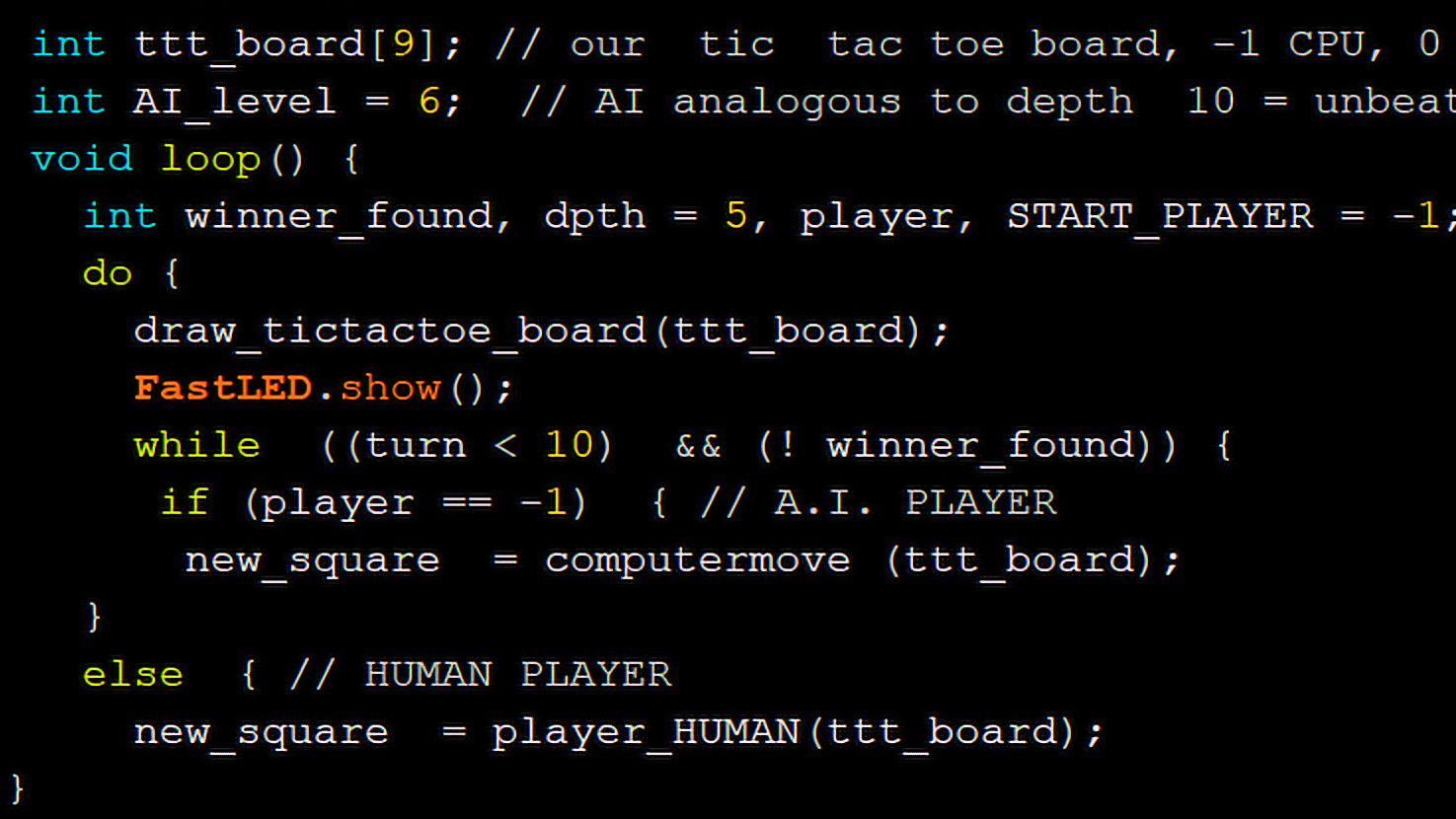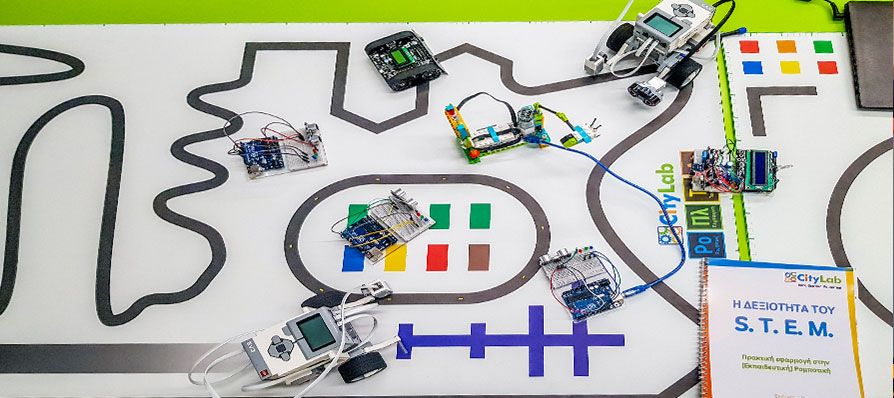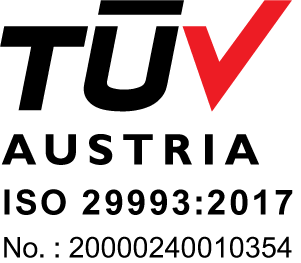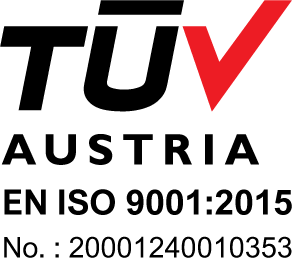ΚΑΛΩΣΗΛΘΑΤΕ ΣΤΟ CityLab

Ελάτε στα Εργαστήρια STEM, Ρομποτικής και Ψηφιακών Δεξιοτήτων του CityLab, σε ένα τόπο γνώσης, δημιουργίας και διασκέδασης. Εξερευνήστε το μαγικό κόσμο της ανακαλυπτικής μάθησης, ζήστε τη χαρά της πραγματικής δημιουργίας μέσα από κατασκευές που λύνουν υπαρκτά προβλήματα του καθημερινού κόσμου, αναπτύξτε τη δημιουργική σας ευφυία, εξερευνήστε και πειραματιστείτε με πρωτότυπες κατασκευές και αποκτήστε ευχάριστα τις αναγκαίες δεξιότητες του 21ου αιώνα! Θα εργαστείτε με κορυφαία, ποιοτικά, επώνυμα και δοκιμασμένα προϊόντα (κιτ ρομποτικής, pc, tablet, software, hardware) σε περιβάλλον που πληροί όλες τις προδιαγραφές των εργαστηρίων STEM.
Λειτουργούμε από το 2014 αποκλειστικά και μόνο με εργαστήρια STEM ως ένας χώρος ανάπτυξης της δημιουργικής ευφυίας των παιδιών, με κύριο όχημα την υιοθέτηση και τη χρήση σύγχρονων μεθόδων, προηγμένων υποδομών και ειδικών καινοτόμων εφαρμοσμένων τεχνολογιών, που είναι ειδικά αναπτυγμένες για αυτό το σκοπό. Στόχος είναι η πρόκληση του ενδιαφέροντος των παιδιών (5+) στα πεδία του STEM Science, Technology, Engineering, Mathematics, και η ανάπτυξη των γνωστικών και κοινωνικών δεξιοτήτων τους, τηρώντας παιδαγωγικές προδιαγραφές και τεχνοκρατικές διαδικασίες βασισμένες στις βέλτιστες διεθνείς επιστημονικές και εκπαιδευτικές πρακτικές.
Χρησιμοποιούμε τη Μηχανική, τη Ρομποτική, και τον Προγραμματισμό διασκεδάζοντας, σαν παιχνίδι, με την τεχνολογία. Μπαίνουμε σε έναν κόσμο που σε ωθεί να φανταστείς και σε εμπνέει να ΔΗΜΙΟΥΡΓΗΣΕΙΣ. Μαθαίνουμε πώς να σχεδιάζουμε και να κατασκευάζουμε τα ρομπότ μας. Στο τέλος, ανακαλύπτουμε ότι όλα αυτά μαζί με τομείς όπως η Τεχνητή Νοημοσύνη, το AR/VR και τα Χρηματοικοκονομικά.είναι εξαιρετικά συναρπαστικά και ίσως η μελλοντική μας ενασχόληση!!!!
Όλα τα εργαστήριά μας σχεδιάζονται και διεξάγονται με δημιουργικό για τα παιδιά τρόπο. ‘Ετσι, με τις δημιουργίες μας και με συνεχή μέριμνα ώστε να μη χαθεί ούτε στιγμή το τεκμήριο της εμπιστοσύνης των μαθητών, (δηλαδή όχι “follow me” μέθοδοι σε διεκπεραιωτικές δραστηριότητες), οι μαθητές μας αποκτούν εμπιστοσύνη στα πεδία του STEM και οδηγούνται οι ίδιοι στη μάθηση σχετικά πολύπλοκων θεμάτων με γνώμονα το ενδιαφέρον τους να διερευνήσουν ένα project. Ξεκινάμε με project-based learning αρχικά και συνεχίζουμε με χρήση projects να οδηγούμαστε στην επίλυση πραγματικών προβλημάτων του πραγματικού κόσμου.


